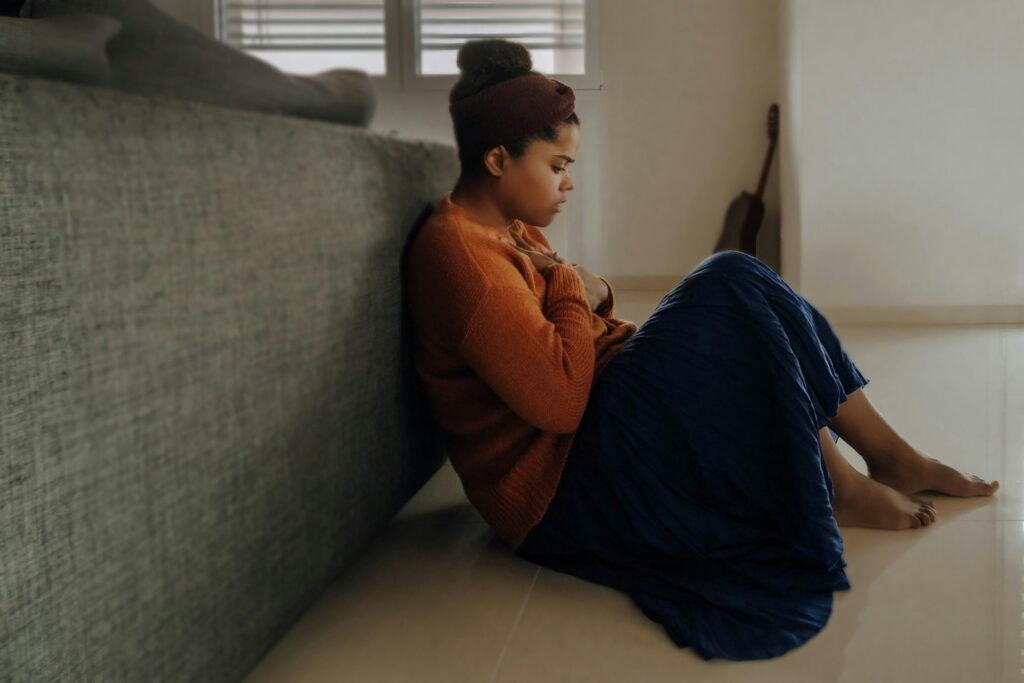
Depakote for Anxiety disorders touch the lives of millions worldwide, disrupting routine tasks, work performance, and personal relationships. Doctors often rely on antidepressants and psychotherapy, yet some treatments developed for other illnesses have quietly entered anxiety care. Among these off-label options is Depakote, a medication primarily prescribed for bipolar disorder and epilepsy. The question arises, though: just how well does Depakote ease anxiety symptoms?
This article examines the drug’s mechanism, weighs its possible advantages and drawbacks for anxious patients, and surveys other choices should Depakote prove unsuitable for you or someone you love.
Anxiety is more than an occasional knot in the stomach. It crosses into disorder when worry lingers, swells beyond reason, and becomes hard to rein in. Helpful mental health specialists recognize several major forms:
- Generalized Anxiety Disorder (GAD)
- Panic Disorder
- Social Anxiety Disorder (SAD)
- Post-Traumatic Stress Disorder (PTSD)
- Obsessive-Compulsive Disorder (OCD)
Signs might include ceaseless dread, racing thoughts, muscle tightness, insomnia, jumpiness, and fatigue. Untreated, anxiety chips away at work, school, and even simple social moments, eventually shrinking a person’s world.
What Is Depakote?
Depakote, the name most people hear, contains the active ingredient divalproex sodium. Doctors call it a mood stabilizer and an anticonvulsant because, when it first reached pharmacies, the FDA approved it for seizures, bipolar ups and downs, and migraine prevention. Since then many clinics have prescribed it off-label for anxiety and other mood troubles, leaning on the drug’s power to lift GABA, the brain’s natural brake, so nerves slow down and calm set in.
How Depakote May Help with Anxiety?
Even though anxiety was never written into the official label, some psychiatrists add it to the toolkit when panic or worry clings to a bigger mood picture like bipolar disorder. Here’s the thinking behind that choice:
GABA Enhancement: By nudging more GABA into the synapses, Depakote can quiet electrical storms in the brain and ease restless thoughts.
Mood Stabilization: When extreme highs and lows give way to a steadier baseline, the clouds of worry often thin out as a side benefit.
Reduced Irritability and Agitation: Those sharp-edged feelings show up in both anxious and mood-disordered minds, and easing them can take the pressure off anxiety.
Clinicians treat anxiety first with therapy and other gentler medicines, but when typical antidepressants miss the mark or when anxiety rides shotgun with mood instability, Depakote might enter the picture as a backup plan.
Clinical Evidence for Depakote and Anxiety
Research exploring Depakote for anxiety remains scarce, yet a handful of findings is worth reviewing:
A 2000 article in the Journal of Clinical Psychopharmacology reported that Depakote eased panic attacks in patients who carried both bipolar and panic disorders.
An additional investigation noted that the drug lessened agitation and anxiety in elderly individuals living with dementia.
A few clinicians have also described modest gains in generalized anxiety symptoms when Depakote is paired with standard treatments.
Because most evidence stems from small cohorts or off-label applications, the drug is rarely the first option when clinicians address anxiety.
Potential Side Effects of Depakote
As with any medicine, Depakote carries side effects, and patients should know the most frequent ones:
- Drowsiness or fatigue
- Nausea or vomiting
- Dizziness
- Weight gain
- Hair loss
- Serious complications can occur as well, including:
- Liver toxicity
- Pancreatitis
- Birth defects if used during pregnancy
For this reason, routine tests of liver function and blood levels are crucial, especially in the drugs early weeks.
Who Might Benefit from Depakote for Anxiety?
Depakote may be weighed in two broad situations:
- Patients with bipolar disorder plus anxiety, in whom stabilizing mood is the main goal.
- Refractory anxiety in which SSRI or SNRI trials have not yielded relief.
- Aggression or Impulsive Behavior with Anxiety: This pattern often appears in teens or people with both ADHD and autism.
- Still, doctors rarely use Depakote as a first-line approach when anxiety stands alone and no mood disorder is present.
Who Should Not Take Depakote?
Valproate-based medicines are not right for every patient. You should steer clear if you:
- Have had serious liver trouble or pancreatitis in the past
- Are pregnant now or hoping to conceive soon
- React with a true allergy to valproate products
- Take other drugs that clash with higher levels of the medicine
Medications Other Than Depakote
When Depakote misses the mark, plenty of proven alternatives exist:
1. SSRIs (Selective Serotonin Reuptake Inhibitors)
Examples: Prozac, Zoloft, Lexapro
These pills remain the first choice for many anxiety disorders.
2. SNRIs (Serotonin-Norepinephrine Reuptake Inhibitors)
Examples: Effexor, Cymbalta
Doctors turn to them when SSRIs lose effect or cause bad side effects.
3. Benzodiazepines
Examples: Xanax, Ativan
They act quickly but can lead to dependence; reserve them for urgent needs.
4. Buspirone
This non-addictive agent is a mainstay for generalized anxiety disorder.
5. Beta-Blockers
These block the surge of adrenaline that fuels physical anxiety symptoms.
Therapies That Do Not Involve Pills
Drugs are helpful but not the whole answer. Solid, research-backed approaches include:
- Cognitive-behavioral therapy (CBT): Often called the gold standard for treating anxiety.
- Exposure Therapy: It helps you face what you fear, cutting back on the urge to avoid.
- Mindfulness & Meditation: Both approaches steadily lower stress and create a calmer mind.
- Lifestyle Changes: Regular exercise, balanced food, and quality sleep form the backbone of good mental health.
Should You Consider Depakote for Anxiety?
If anxiety still disrupts your life after standard treatments and you also experience mood swings, your doctor might explore Depakote for Anxiety as an add-on. Even so, the drug must be prescribed and watched closely by a trained psychiatrist.
At Hillside Horizon we know anxiety rarely travels alone. That is why our staff builds tailored plans that mix medication, therapy, and lifestyle guidance. Find out how we review options like Depakote as part of our full-range evaluation.
Final Thoughts!!
Though Depakote is not the first-line choice for anxiety, it can ease severe agitation linked to bipolar disorder or other mood conditions. Any benefit must be measured against side effects and compared to safer, more established alternatives.
If you are weighing anxiety treatments for yourself or someone dear to you, first seek advice from a licensed mental health provider who can help identify the safest and most effective course of care.






